Mom Of Three Ends Up Being Scapegoat After Arguing That Dog-Mom Can't Be Compared To Real Mom
Unconditional affection, in its purest form, is what we give our pets. When your dog misbehaves, you might get annoyed or even furious, but that doesn't mean you stop loving them.
There are a million and one reasons why people refer to themselves as "dog moms." You see, a dog is like a child to those who love them, and their actions have no bearing on that affection.
Whatever they do, you still adore them, and you don't even need to consider it because loving your dog as a mother loves a child comes so naturally. It is ultimately our responsibility to provide for them, feed them, provide water and shelter, and ensure that they feel loved.
But would you say that being a dog mom is the same as being a mom to a child? Well, the OP of today's story does not agree.
The OP is a mom of three, and the conversation about motherhood came up at work. It was between the OP, her boss, and another coworker who is not a mother.
The OP says that she's always right because she's a mom, but her coworker claimed to be a mom too. The OP replied that being a dog mom doesn’t count, but that didn't sit well with her coworker.
Read the full story in the OP's own words below to find out how the conversation went.
The OP writes
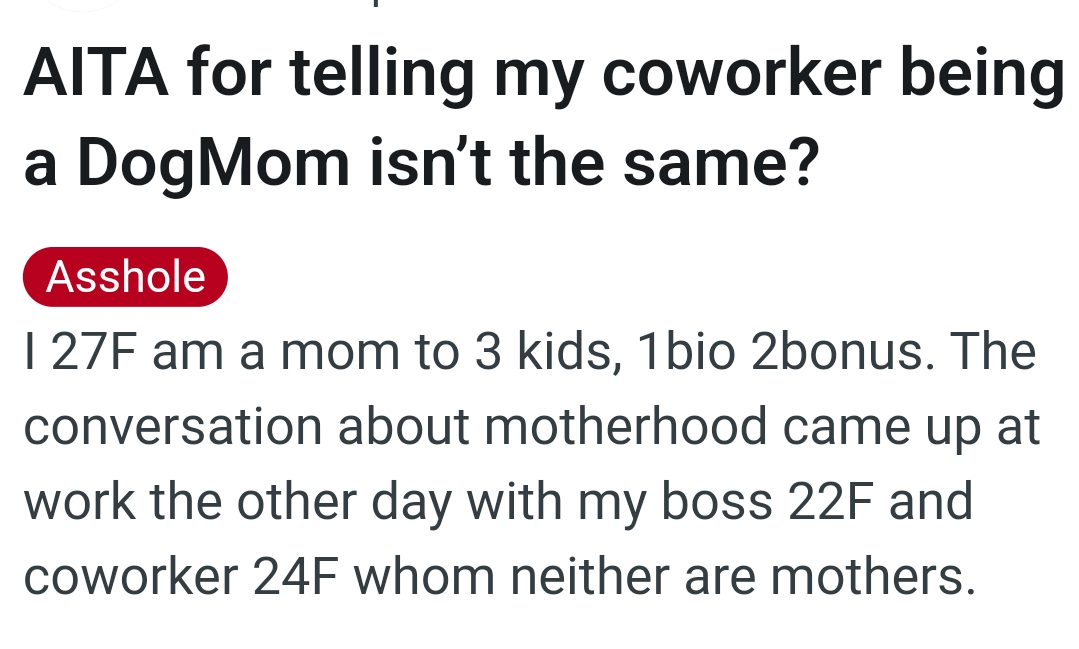
"I have plenty of animals at home; it’s not the same."
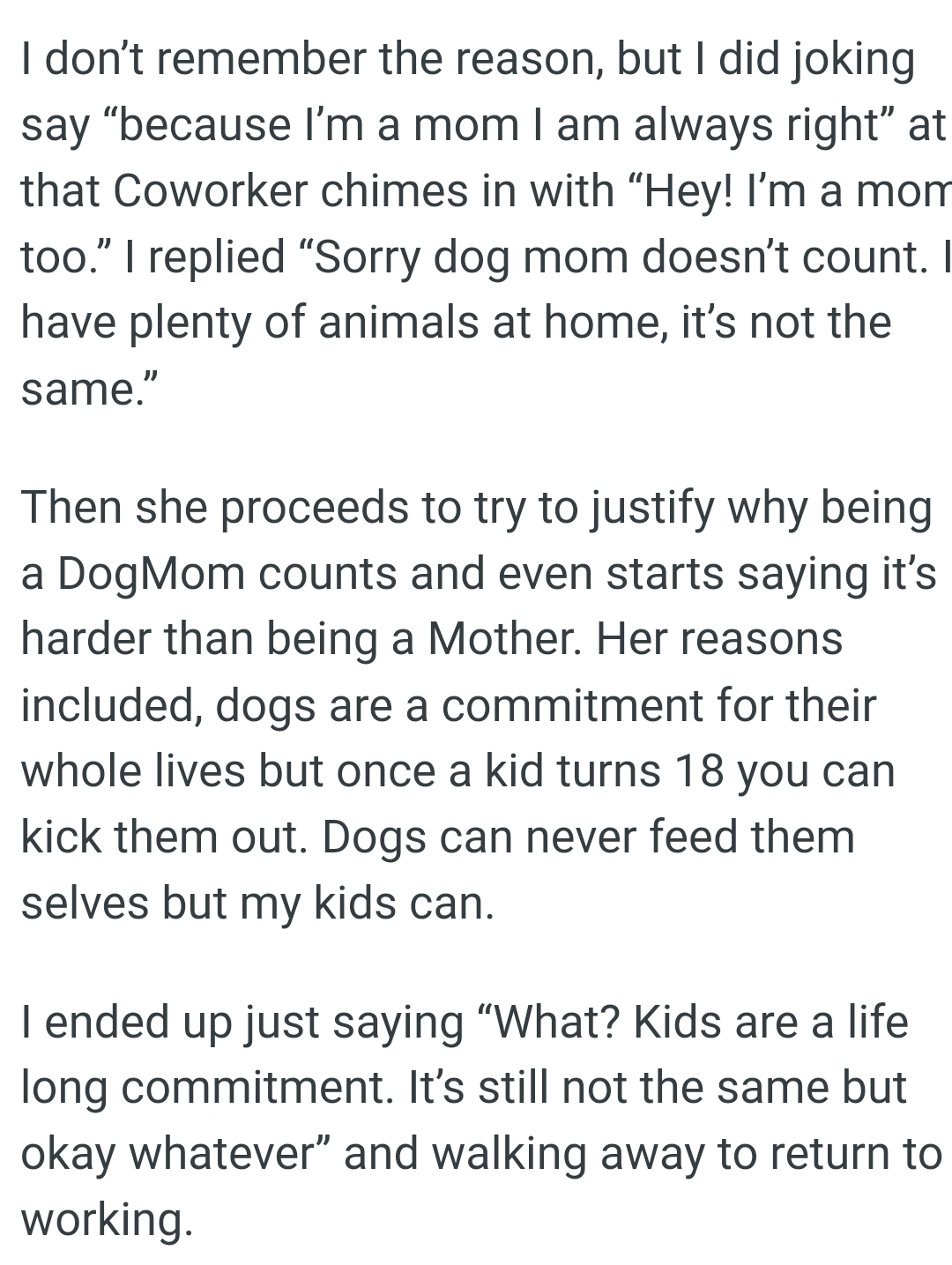
The Role of Identity in Parenting
Parenting is often intertwined with personal identity, and for many, the title of 'mom' or 'dad' carries profound significance. According to developmental psychologist Dr. Judith Rich Harris, our identities are deeply shaped by our social environments, including our roles in families.
This can make comparisons between different types of parenting—such as pet parenting versus human parenting—feel invalidating or dismissive. It's essential to recognize that each parenting journey is unique, shaped by individual circumstances and emotional investments.
The OP realized that she miscommunicated the order of events, so she left these unsaid details as they are just thoughts and feelings that came afterward.
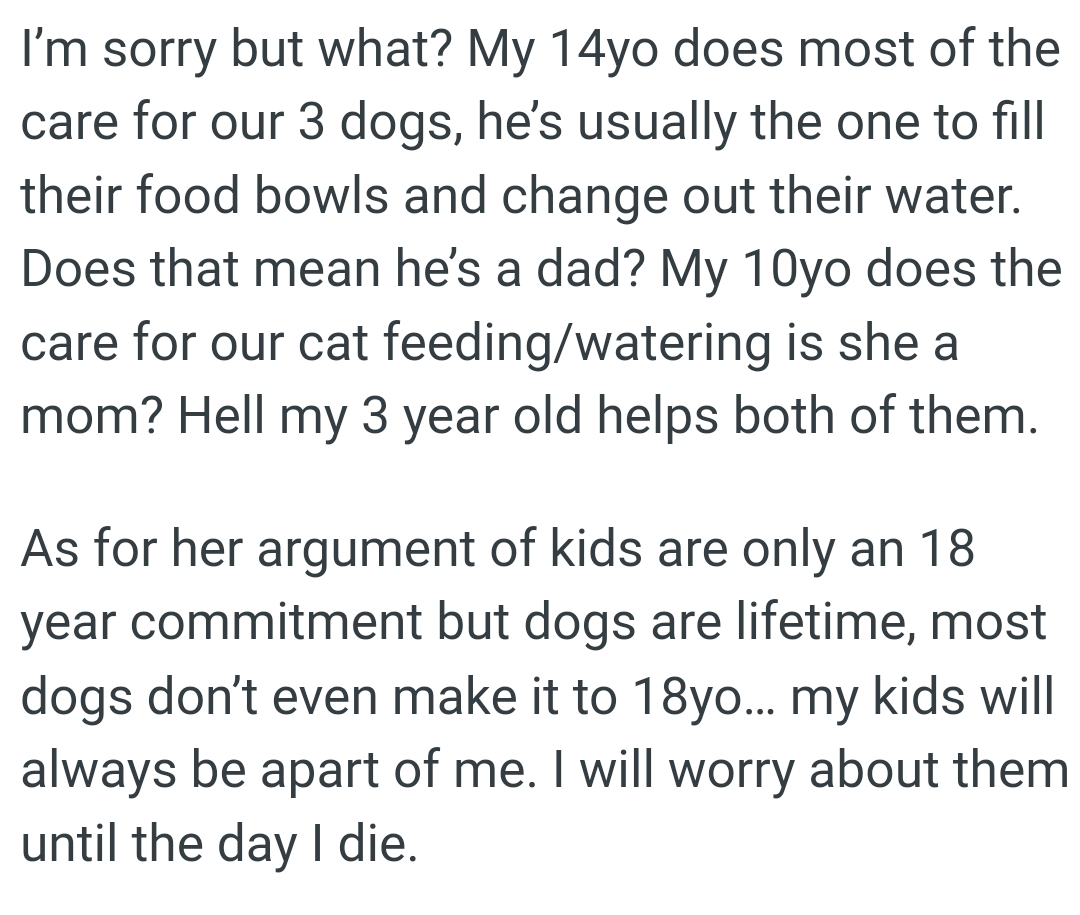
Putting out a bowl of food and water for fur babies isn’t part of being a parent.
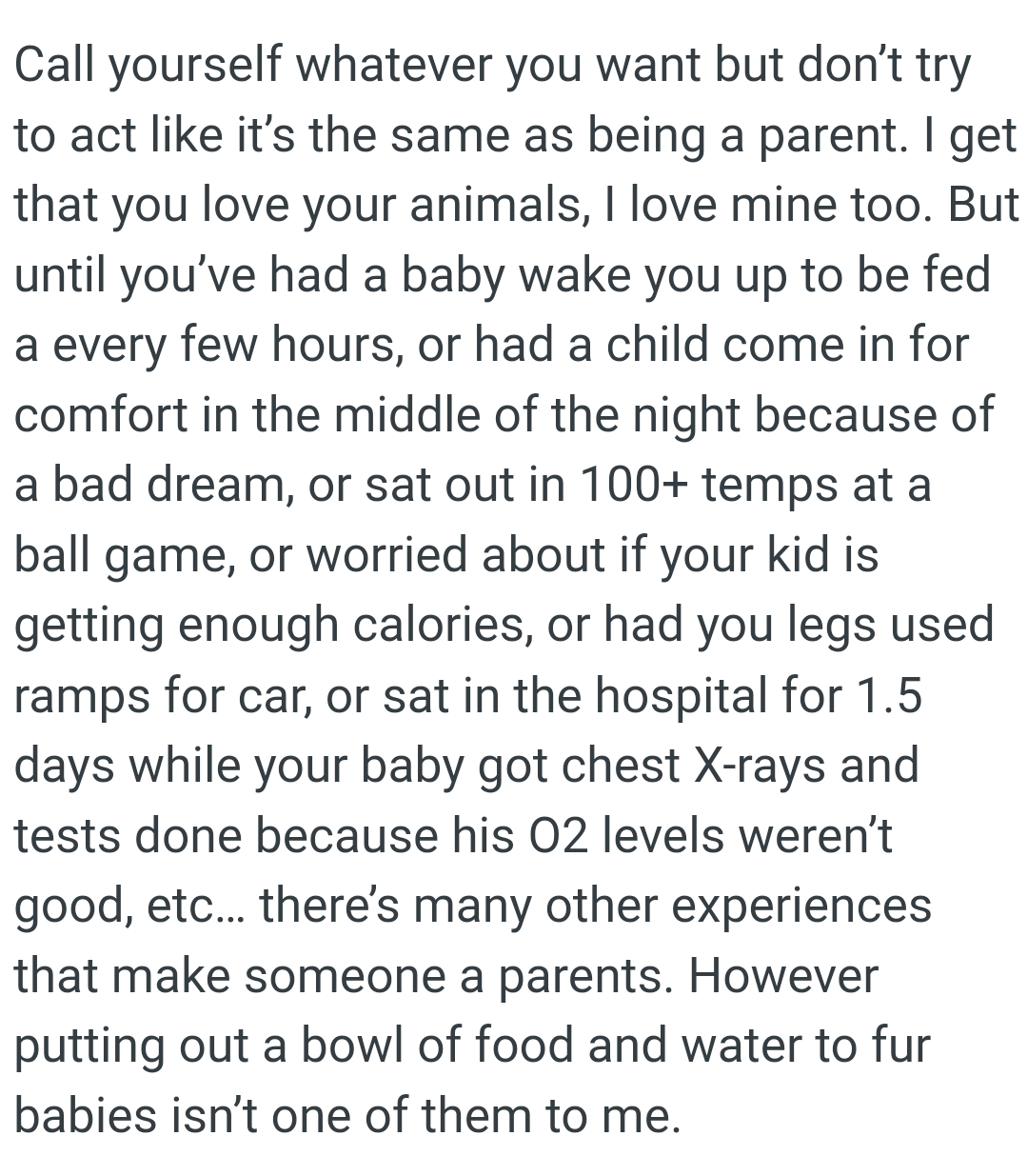
OP has offered the following explanation for why she thinks she might be the AH:
Am I the AH for telling her she was wrong? I feel I might be the AH because I disregarded her life experience and told her straight up she was wrong.
Let's head into the comments section and find out what other Redditors have to say regarding the story.
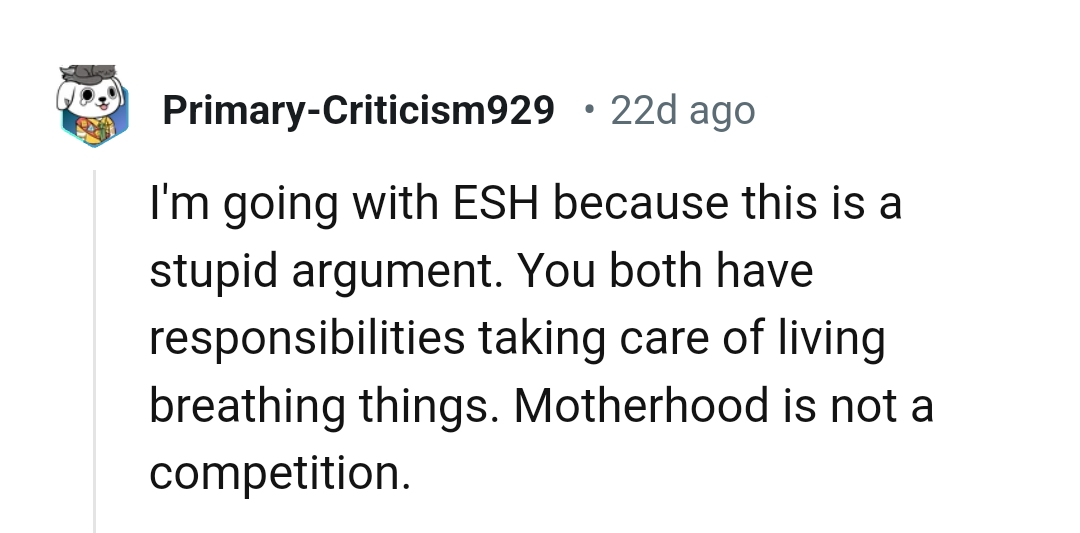
It is not a struggle olympics.
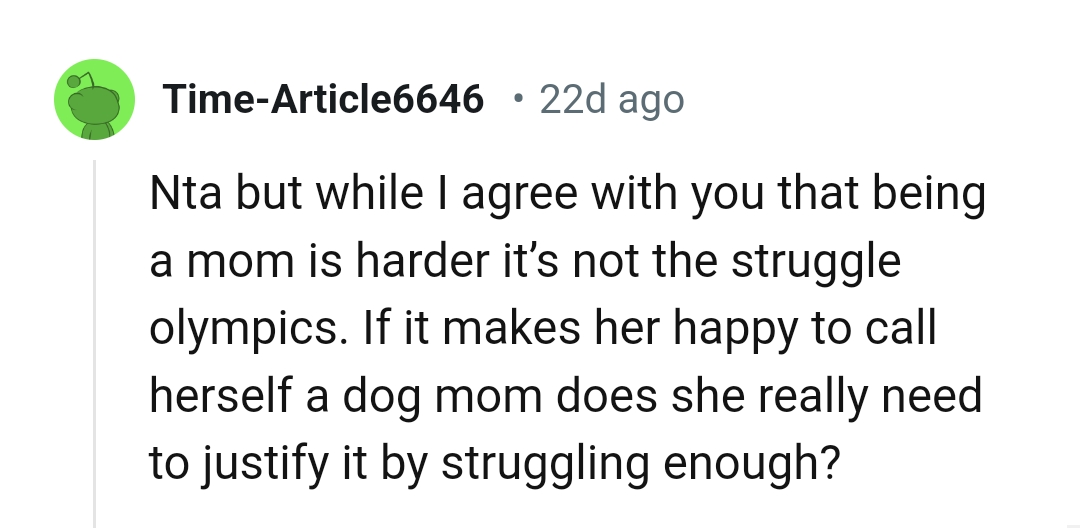
Comparisons between pet owners and parents can evoke feelings of defensiveness because they challenge personal values and beliefs. According to Dr. William Doherty, a family therapist, "When our identities are questioned, we often feel the need to defend them, leading to strong emotional reactions." This suggests that individuals often react strongly when their identity is questioned or devalued. When someone dismisses their role as a 'dog mom,' it can feel like an attack on their parenting skills or emotional investment, leading to conflict instead of mutual understanding, as noted by Dr. Michael Thompson, a child psychologist, who states, "Such dismissals can undermine a person's sense of self and provoke defensiveness."
You never know who is listening.
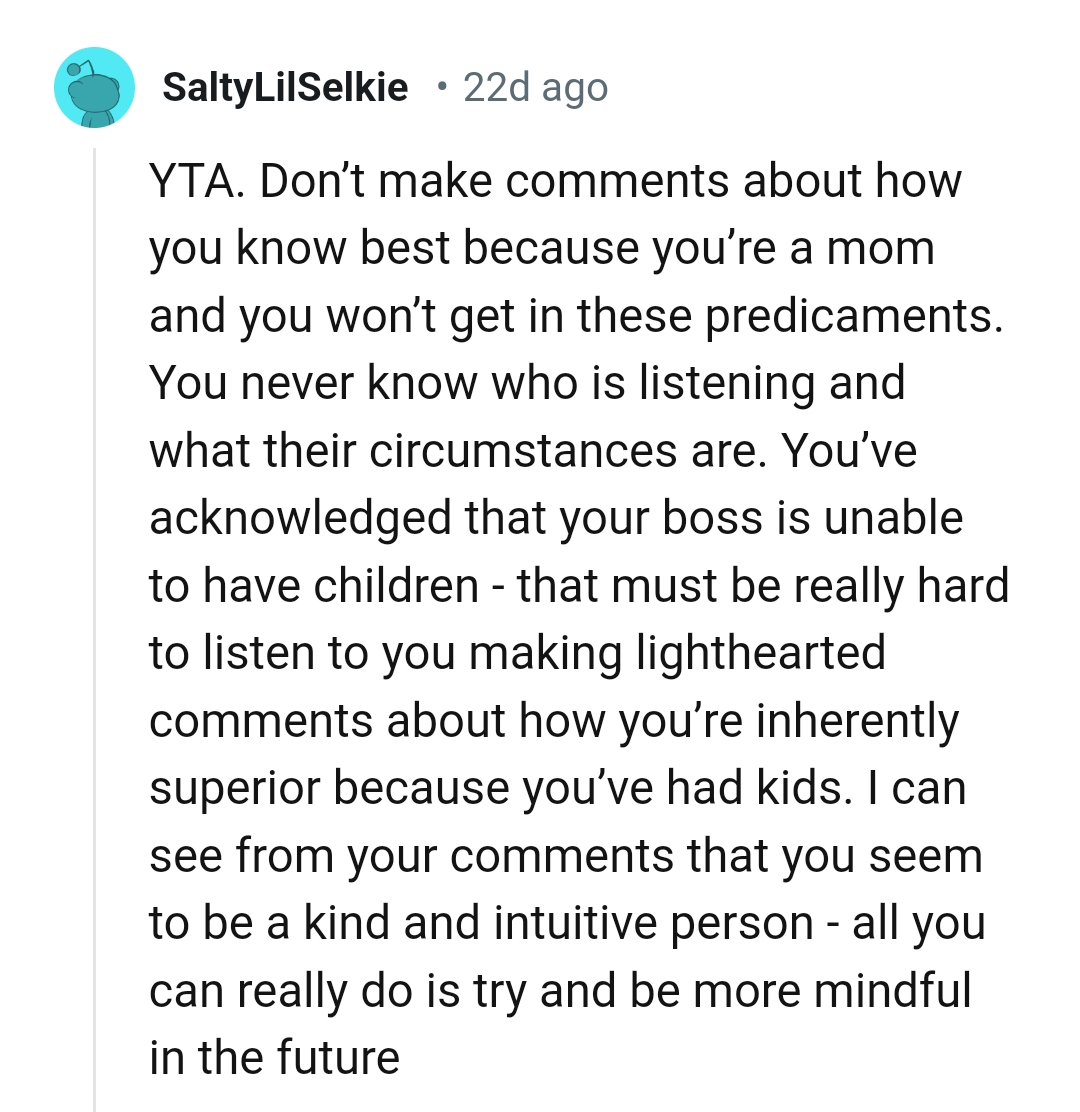
The OP's not wrong, but she is the AH.
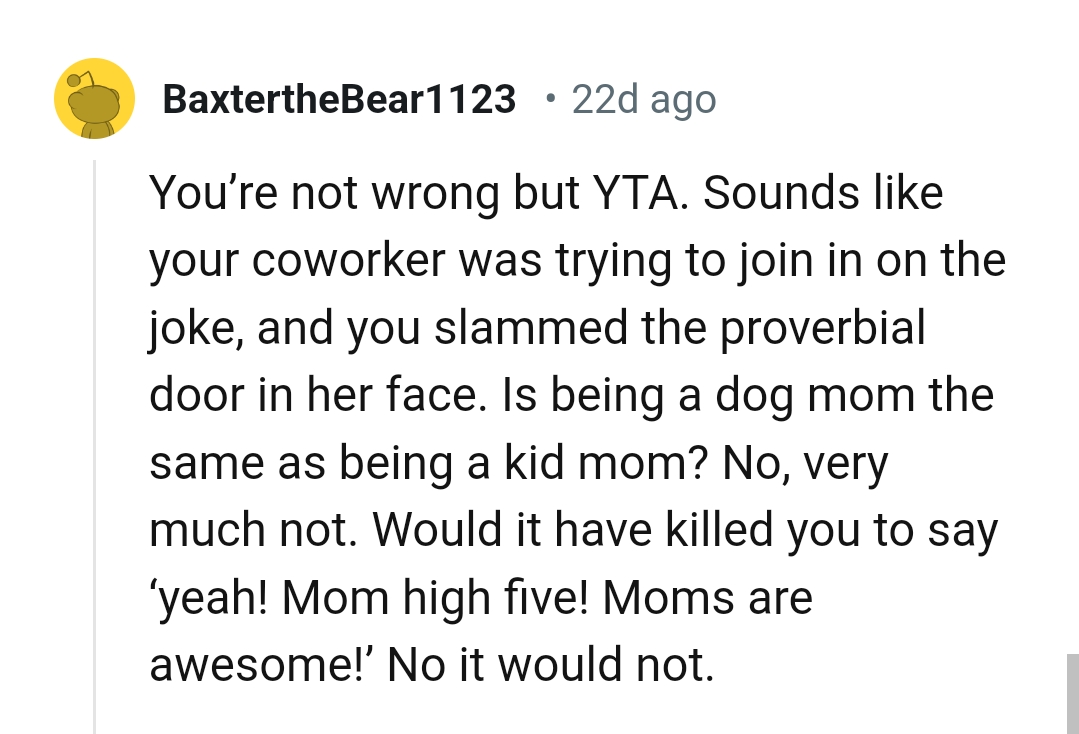
Understanding Attachment Theory
Attachment theory, as developed by Dr. John Bowlby, provides insights into how early relationships shape our emotional responses and relationships in adulthood. This theory explains that the bonds formed in childhood influence how we perceive and respond to relationships later in life.
When individuals feel that their roles are being undermined, it can trigger attachment-related anxieties, leading to defensive or aggressive responses. Recognizing this can help individuals navigate conflicts by understanding that underlying fears may be at play.
Having an animal is not the same responsibility.
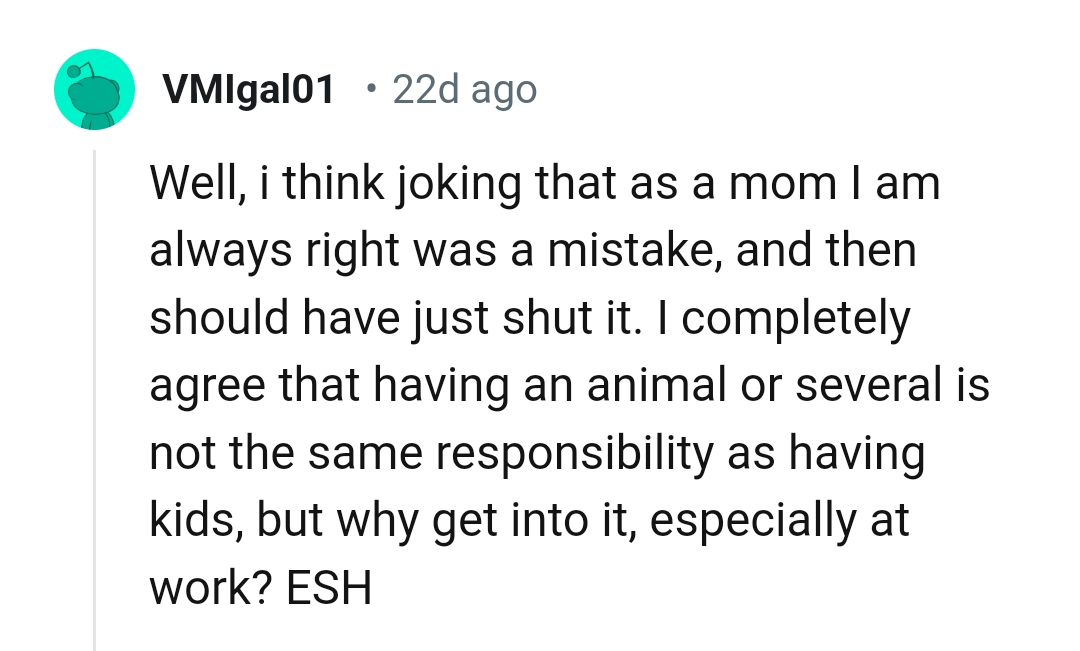
From a hard believer in pet owners.
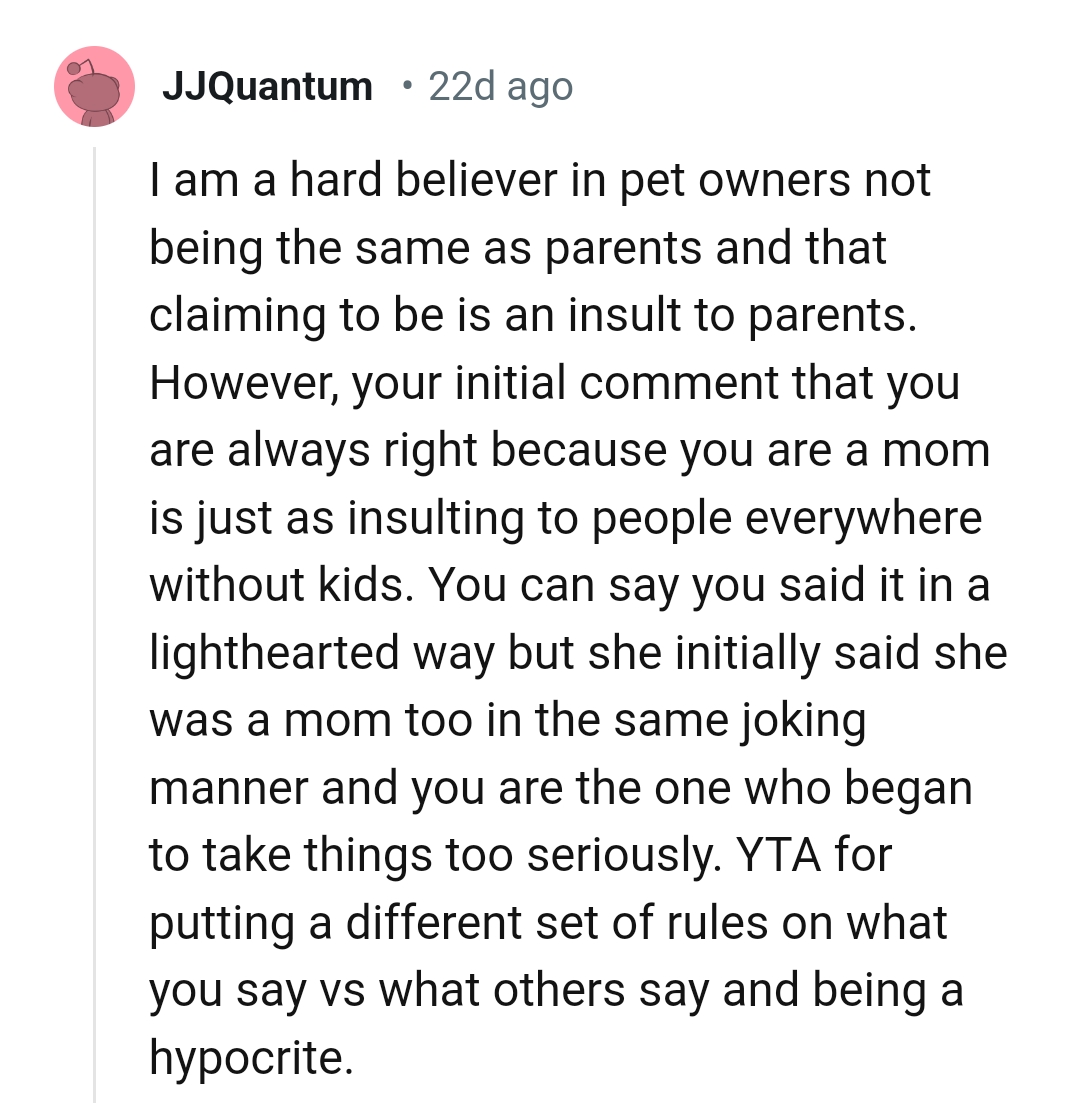
The emotional responses tied to parenting roles can be intense, particularly when faced with invalidation. According to research from the Journal of Family Psychology, feelings of inadequacy can arise when comparing one's parenting style to others, leading to conflicts in social settings.
It’s helpful to practice self-validation and reaffirm one's parenting choices, which can reduce feelings of inadequacy and defensiveness in conversations about parenting.
From a dog mom who is about to be a human mom.
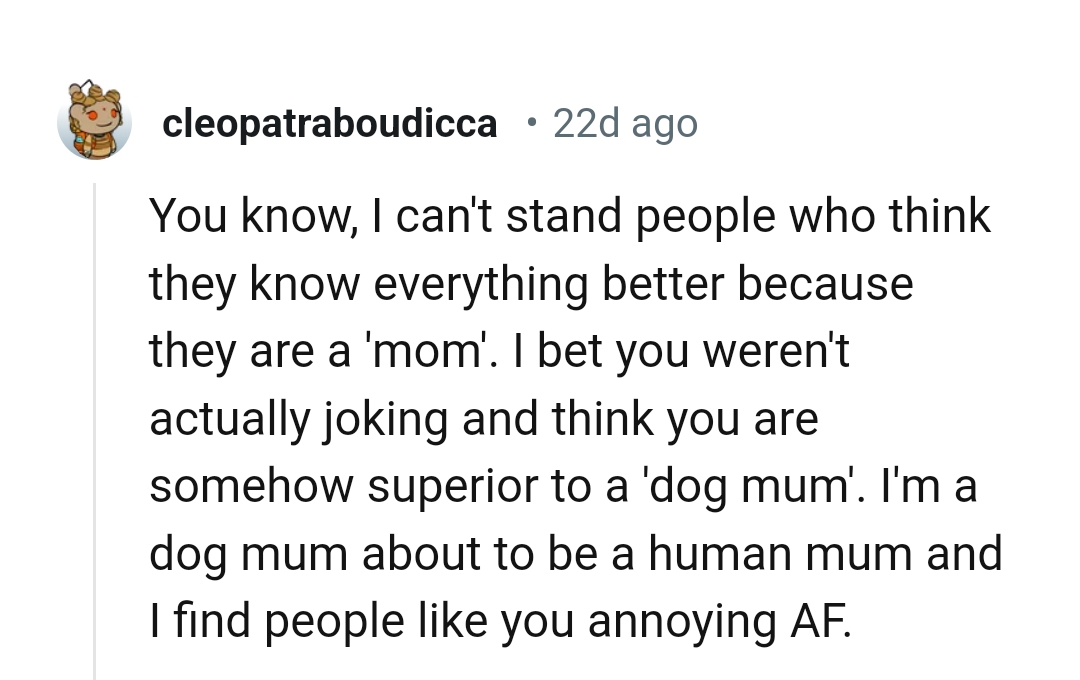
The OP sounds extraordinarily painful.

No matter how our dogs act or how many shoes they chew on, we will always love them. We regard ourselves as our dog's parents or guardians, so you already know why the OP was descended upon by Redditors.
OP is among those mothers who believe that raising children makes them feel like they are experts in everything, but being that kind of mom is not a smart idea. The OP was declared the AH, and that's where we draw the curtains!
Psychological Analysis
This situation highlights the emotional stakes involved in parenting identities, where feelings of invalidation can trigger defensive reactions. Understanding that these responses are rooted in personal values and attachment can help individuals navigate conflicts more compassionately.
Encouraging open dialogue about differing parenting styles can create an environment of mutual respect, leading to more productive discussions.
Analysis generated by AI
Analysis & Alternative Approaches
In summary, the complexity of parenting identities and the emotional investments involved can lead to significant conflicts when comparisons arise. Understanding the psychological underpinnings of these responses can facilitate healthier dialogues.
Ultimately, embracing the uniqueness of each parenting journey is crucial for fostering empathy and mutual respect in discussions about parenting roles.
Strategies for Healthy Communication
Effective communication strategies are essential in resolving conflicts rooted in differing parenting philosophies. Dr. Marshall Rosenberg's Nonviolent Communication framework emphasizes understanding and expressing feelings and needs without assigning blame.
By employing techniques from this framework, individuals can engage in more productive conversations that foster understanding rather than defensiveness. Practicing active listening and expressing personal feelings about one's parenting can create space for mutual respect and understanding among differing viewpoints.



